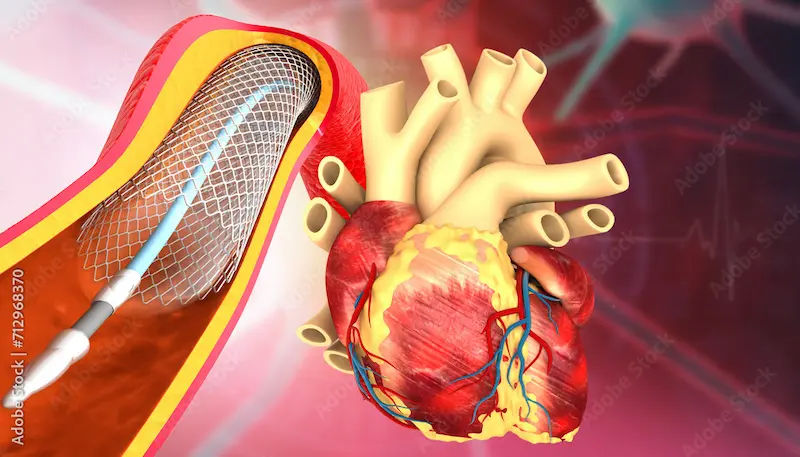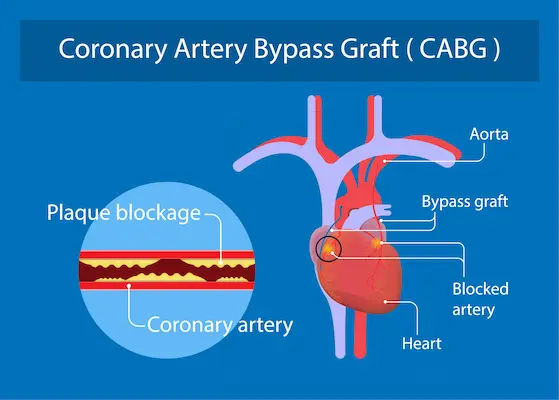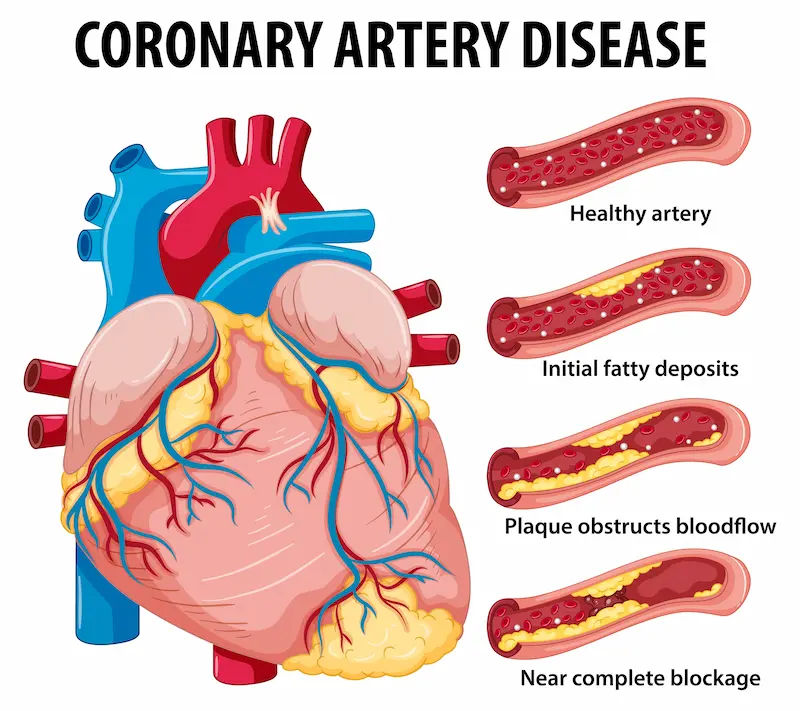Understanding Coronary Artery Disease
Understand coronary artery disease, its causes, risk factors, symptoms, and how it affects heart function. Learn about diagnosis, treatment options, and prevention strategies to protect your heart health.

Written by Dr. Siri Nallapu
Reviewed by Dr. Rohinipriyanka Pondugula MBBS
Last updated on 13th Jan, 2026

Coronary Artery Disease (CAD) is one of the most common heart conditions, affecting millions of people worldwide. It occurs when the blood vessels that supply oxygen-rich blood to the heart become narrowed or blocked due to a buildup of plaque. This can lead to serious complications, including heart attacks.
If you or a loved one has been diagnosed with CAD or are experiencing symptoms, it's important to understand the condition, its causes, symptoms, and how to manage it effectively. Let’s break it down in simple terms.
What Is Coronary Artery Disease?
Coronary arteries are the blood vessels that supply your heart with oxygen and nutrients. Over time, cholesterol, fat, and other substances can build up inside these arteries, forming plaque. This buildup is called atherosclerosis. When the arteries narrow or get blocked, blood flow to the heart is reduced, leading to chest pain (angina) or even a heart attack.
What Are the Symptoms of CAD?
Symptoms can vary, but common signs include:
Chest pain (angina) – A feeling of pressure, tightness, or squeezing in the chest.
Shortness of breath – Difficulty breathing, especially during physical activity.
Fatigue – Feeling unusually tired even with minimal exertion.
Heart attack symptoms – Severe chest pain, pain radiating to the arm, jaw, or back, nausea, sweating, and dizziness.
Some people may not experience noticeable symptoms until the disease is advanced, which is why regular check-ups are essential.
Consult Top Heart Specialists
What Causes Coronary Artery Disease?
Several factors contribute to CAD, including:
High cholesterol – Excess LDL ("bad" cholesterol) leads to plaque buildup.
High blood pressure – Puts extra strain on artery walls.
Smoking – Damages blood vessels and accelerates plaque formation.
Diabetes – High blood sugar increases the risk of artery damage.
Obesity & unhealthy diet – Excess weight and processed foods worsen heart health.
Lack of exercise – Physical inactivity weakens the heart and blood vessels.
Family history – Genetics can play a role in CAD risk.
How Does CAD Affect Your Health?
If left untreated, CAD can lead to:
Heart attack – A complete blockage of a coronary artery cuts off blood supply to part of the heart.
Heart failure – The heart becomes too weak to pump blood efficiently.
Arrhythmias – Irregular heartbeats due to poor blood flow.
The good news is that with proper care, CAD can be managed effectively.
How Can You Manage Coronary Artery Disease?
1. Lifestyle Changes
Below lifestyle changes can help manage coronary artery diseases,
Eat a heart-healthy diet – Focus on fruits, vegetables, whole grains, lean proteins, and healthy fats (like olive oil and nuts). Avoid processed foods, excess salt, and sugary drinks.
Exercise regularly – Aim for at least 30 minutes of moderate activity (walking, swimming, cycling) most days.
Quit smoking – Smoking damages arteries and worsens CAD.
Manage stress – Practice relaxation techniques like meditation, deep breathing, or yoga.
2. Medications
Your doctor may prescribe:
Cholesterol-lowering drugs (Statins) – Reduce plaque buildup.
Blood pressure medications – Keep BP in check.
Aspirin or blood thinners – Prevent clots.
Nitroglycerin – Relieves chest pain.
3. Medical Procedures
If lifestyle changes and medications aren’t enough, procedures like:
Angioplasty & stenting – Opens blocked arteries.
Coronary artery bypass surgery (CABG) – Redirects blood flow around blocked arteries.
When Should You See a Doctor?
If you experience:
Persistent chest pain
Shortness of breath
Unexplained fatigue
Symptoms of a heart attack
Don’t wait, seek medical help immediately!
Book a Heart Health Check-Up Today
Early detection saves lives. If you're concerned about CAD or want a preventive check-up, you can schedule a consultation with a cardiologist through Apollo 24|7. Call us or book online for expert advice and personalized care.
Conclusion
Coronary Artery Disease is serious but manageable. By making healthy lifestyle choices, taking prescribed medications, and staying in touch with your doctor, you can protect your heart and live a fulfilling life.
Consult Top Heart Specialists
Consult Top Heart Specialists

Dr. Anand Ravi
General Physician
2 Years • MBBS
Bengaluru
PRESTIGE SHANTHINIKETAN - SOCIETY CLINIC, Bengaluru

Dr. Zulkarnain
General Physician
2 Years • MBBS, PGDM, FFM
Bengaluru
PRESTIGE SHANTHINIKETAN - SOCIETY CLINIC, Bengaluru

Dr. Tripti Deb
Cardiologist
40 Years • MBBS, MD, DM, FACC, FESC
Hyderabad
Apollo Hospitals Jubilee Hills, Hyderabad
Dr Moytree Baruah
Cardiologist
10 Years • MBBS, PGDCC
Guwahati
Apollo Clinic Guwahati, Assam, Guwahati

Dr. E Prabhakar Sastry
General Physician/ Internal Medicine Specialist
40 Years • MD(Internal Medicine)
Manikonda Jagir
Apollo Clinic, Manikonda, Manikonda Jagir
(175+ Patients)




